Women Initiative

What initiatives can be taken to improve scientific literacy among women ?
Scientific literacy is important for making informed decisions about health, environment, and technology. Women often face barriers to accessing scientific education and resources. To improve scientific literacy among women, initiatives such as educational programs, community outreach, media representation, and policy changes can be taken. These include integrating STEM subjects into the school curriculum, offering girls-only classes, connecting young girls with female role models in STEM fields, establishing community-based science clubs for women of all ages, organizing public lectures by women scientists, conducting workshops and training sessions on various scientific topics, highlighting stories of successful women in science through media platforms, encouraging more women to pursue careers in science journalism, utilizing social media platforms to create awareness about scientific issues affecting women's lives, advocating for increased funding for educational programs and research initiatives focused on improving women's participation in STEM fields, lobbying for policies that ensure equal opportunities for women in science education and employment, and implementing mandatory gender bias training for educators and professionals working in STEM fields. By implementing these initiatives, we can create a more inclusive environment that encourages women to explore and contribute to the field of science.

What strategies have been successful in engaging men as allies in women-centered charitable initiatives ?
Engaging men as allies in women-centered charitable initiatives is crucial for achieving gender equality and empowering women. Here are some strategies that have been successful in engaging men as allies: 1. Educate and Empower: Provide information about the importance of women's issues and encourage active participation in discussions and events related to women's issues. 2. Highlight Mutual Benefits: Show how supporting women-centered initiatives can benefit everyone, including men, and share success stories of male allies. 3. Create Opportunities for Collaboration: Partner with male-dominated organizations and organize joint events or activities that bring together men and women to work towards a common goal. 4. Recognize and Reward Allies: Publicly acknowledge and thank men who support women-centered initiatives and offer incentives or rewards for their support. By implementing these strategies, we can effectively engage men as allies in women-centered charitable initiatives and achieve gender equality.

How can women improve their leadership skills ?
The article outlines strategies for women to enhance their leadership skills, including self-awareness and confidence, continuous learning, effective communication, emotional intelligence, building relationships, and taking initiative.

How does climate change disproportionately affect women in developing countries ?
Climate change disproportionately affects women in developing countries due to socio-economic factors, cultural norms, and division of labor. Impacts include reproductive health issues, nutritional deficiencies, loss of traditional occupations, increased workload, water scarcity, and energy poverty. Adaptation and mitigation efforts should involve women in decision-making and build their capacities. Gender-sensitive policies and interventions are needed to address these challenges and promote a more equitable future.
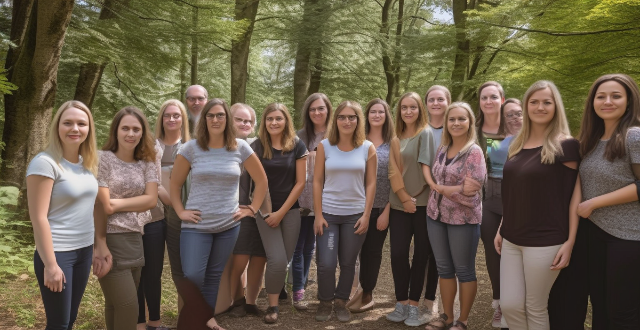
What are some successful examples of integrating gender equality into climate change initiatives ?
Integrating gender equality into climate change initiatives is crucial for achieving sustainable development and ensuring that everyone benefits from environmental protection measures. Successful examples include promoting women's participation in decision-making, incorporating gender perspectives into policies and programs, supporting women-led climate action initiatives, and addressing gender-based violence in climate displacement. These efforts not only promote social justice but also enhance the effectiveness of climate actions by harnessing the strengths and contributions of all individuals, regardless of their gender.

How can women effectively manage their wealth ?
Managing wealth is crucial for women to achieve financial security. Tips include setting SMART financial goals, creating a budget, building an emergency fund, investing wisely, prioritizing retirement savings, and seeking professional advice. By following these steps, women can effectively manage their wealth and achieve their financial goals.

What are the common fertility issues faced by women ?
Fertility issues can be a sensitive and complex topic for many women. There are several common fertility problems that women may face, which can impact their ability to conceive and carry a pregnancy to term. These include ovulation disorders, endometriosis, uterine fibroids, tubal blockage, and age-related infertility. It's important for women who are struggling with fertility to seek medical advice and explore treatment options that best suit their individual needs and circumstances.
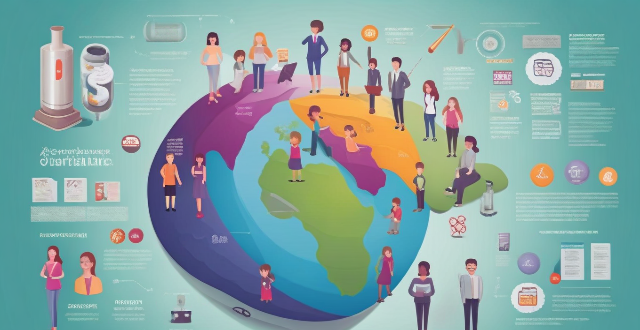
How have women's empowerment initiatives affected gender equality globally ?
The essay discusses the impact of women's empowerment initiatives on gender equality globally. The initiatives have increased access to education and training for women, leading to their active participation in public life. They have also provided economic empowerment through financial resources, microfinance loans, and entrepreneurship training programs, resulting in greater gender equality in the workplace. Health and reproductive rights have been improved through awareness campaigns and advocacy for policies supporting family planning and contraception. Finally, these initiatives have encouraged women's political participation, creating a more diverse and representative government. Overall, women's empowerment initiatives have played a crucial role in promoting gender equality worldwide.

In what ways do women's empowerment initiatives contribute to community development ?
Women's empowerment initiatives are crucial for community development as they address gender inequalities and foster inclusivity. These initiatives benefit not only women but also have a positive ripple effect on the broader community, leading to more sustainable and equitable growth. Economic growth is achieved through increased participation in the workforce, entrepreneurship and innovation, and improved household economics. Social development is promoted through health and well-being, education, and gender equality. Political empowerment is enhanced through increased participation in decision-making and promotion of good governance. Environmental sustainability is ensured through resource management and climate action. Cultural preservation and exchange are enriched through artistic expression and cultural exchange. Women's empowerment initiatives are essential for comprehensive community development, addressing gender inequalities, promoting inclusivity, and paving the way for sustainable growth, social cohesion, and a brighter future for all members of the community.

In what ways does education empower women socially and politically ?
Education is crucial for women's empowerment, enabling them to challenge societal norms and contribute more fully to society. It fosters increased awareness, improved socioeconomic status, and enhanced social relationships. Education also leads to greater political participation, policy influence, and promotion of gender equality. Overall, education enriches society by improving the lives of women and contributing to a more equitable world.

How can women build a diversified portfolio to minimize risks and maximize returns ?
The article provides a comprehensive guide on how women can build a diversified portfolio to minimize risks and maximize returns in the stock market. It emphasizes the importance of education, starting early, setting clear goals, diversifying investments across different asset classes, industries, and geographic regions, rebalancing regularly, and considering professional advice when needed. By following these tips, women can create a strong foundation for long-term financial success.

How can I get involved with women-focused charity work locally or internationally ?
Involving in women-focused charity work is a meaningful way to promote gender equality and empower women. This guide provides tips on how to get involved locally and internationally, including researching organizations, volunteering time, donating money or resources, attending events and fundraisers, fundraising for international organizations, participating in online campaigns, and traveling abroad to support women's issues. Additionally, it emphasizes the importance of being open-minded, building relationships, staying informed, and evaluating your impact to make the most of your participation.

Can women play professional football ?
**Can Women Play Professional Football?** The topic discusses the possibility and reality of women playing professional football. It starts with a historical perspective, highlighting the early days when women were not allowed to participate in football due to societal norms and gender roles. However, the first recorded women's football match took place in 1895, despite opposition from male-dominated football associations. The development of women's football is also discussed, with the establishment of the Women's World Cup in 1991 marking a significant milestone for the sport. Professional leagues such as the National Women's Soccer League (NWSL) in the United States have provided opportunities for female players to earn a living through football. The skill and talent of female footballers are emphasized, stating that they possess the same level of skill and talent as their male counterparts. Many women have showcased their abilities on the world stage, earning recognition and respect from fans and peers alike. However, the topic also highlights the challenges faced by women in football, such as unequal pay and limited resources compared to men's teams. There is a need for continued advocacy and awareness to ensure that women's football receives the same level of attention and investment as men's football. In conclusion, women can indeed play professional football. They have demonstrated their skills and talents on various platforms, including international competitions like the Women's World Cup. While there is still room for improvement in terms of equality and resources, it is clear that female footballers are capable of competing at the highest level of the sport.
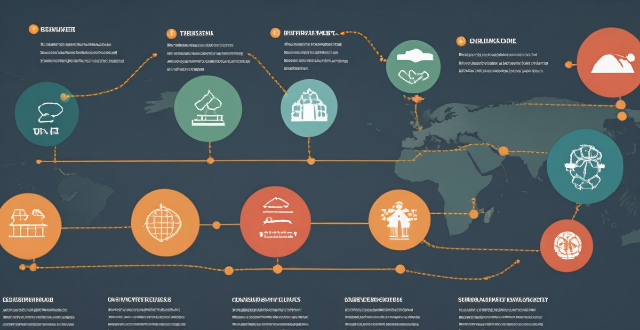
How does TCFD align with other global reporting initiatives like the Global Reporting Initiative (GRI) ?
The Task Force on Climate-related Financial Disclosures (TCFD) and the Global Reporting Initiative (GRI) are two global sustainability reporting frameworks that share several key points of alignment. Both provide guidelines for companies to report on their sustainability performance, with TCFD focusing specifically on climate-related financial disclosures and GRI covering a broader range of sustainability issues. They also emphasize the importance of materiality assessment, stakeholder engagement, risk management, and climate change disclosures in determining which aspects are most relevant to an organization's business model and strategy. By following both frameworks, companies can provide a more comprehensive picture of their sustainability performance and demonstrate their commitment to addressing climate change and other sustainability issues.

How should women behave in a mixed-gender professional environment ?
Navigating gender dynamics in a mixed-gender professional environment requires women to exhibit confidence, professionalism, and foster positive relationships with colleagues. Key guidelines include speaking up, taking credit for achievements, dressing appropriately, conducting oneself with integrity, collaborating with colleagues, networking, challenging stereotypes, seeking feedback, supporting diversity, mentoring others, staying authentic, and pursuing personal growth. By following these principles, women can thrive professionally and contribute positively to the workplace culture.
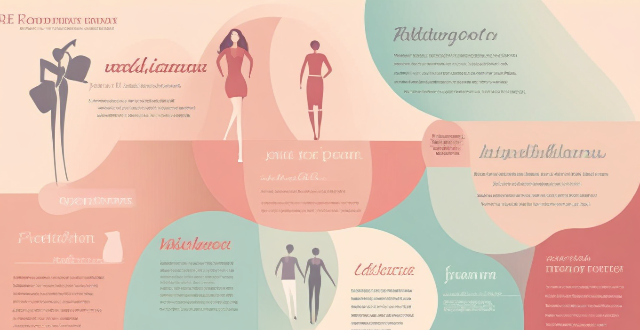
What advice would you give to women who struggle with managing relationships ?
Managing relationships can be challenging, especially for women juggling multiple roles. Effective strategies include open communication, setting healthy boundaries, practicing empathy, maintaining independence, resolving conflicts constructively, and continuous mutual growth. By adopting these approaches, women can enhance their relationship management skills and foster more fulfilling connections.

How can counseling help women dealing with infertility-related stress ?
Counseling is crucial for women dealing with infertility-related stress. It helps identify emotional distress, address mental health concerns, build resilience and coping strategies, navigate medical treatment options, and foster hope and healing. By providing emotional support and promoting self-care practices, counseling empowers women to face the challenges of infertility with strength and courage.

What resources are available to help women learn about wealth management ?
The text provides a summary of resources available to help women learn about wealth management. It mentions online courses and webinars, books, podcasts, and financial planners and advisors as some of the resources that can be used by women to gain knowledge and skills in wealth management. The resources are aimed at helping women take control of their finances and secure their financial future.

What steps can women take to build a strong professional network ?
Building a strong professional network is crucial for career growth and advancement. For women, it can be especially important as they often face unique challenges in the workplace. Here are some steps that women can take to build a robust professional network: 1. Attend industry events and conferences. 2. Join professional organizations and associations. 3. Utilize social media and online platforms. 4. Find a mentor or sponsor. 5. Participate in training programs and workshops. 6. Volunteer for committees or boards. 7. Stay in touch with colleagues and alumni.

What is the success rate of in vitro fertilization (IVF) for women ?
In vitro fertilization (IVF) success rate for women depends on age, cause of infertility, and quality of eggs and sperm. Younger women with healthy eggs and sperm have higher chances of success, while older women or those with certain causes of infertility may face lower success rates. Other factors such as the number of embryos transferred, clinic experience, and use of assisted reproductive technologies can also impact the outcome. It is important to consult with a qualified fertility specialist to determine the best course of action for achieving pregnancy through IVF.

What regular health check-ups should women prioritize ?
As women, prioritizing regular health check-ups is crucial for maintaining good health and preventing potential health issues. Key components of the annual wellness visit include medical history review, physical examination, vaccination updates, and screenings such as mammograms and colonoscopies. Mammograms are essential for breast cancer screening in women over the age of 40, while Pap tests and HPV tests are used to screen for cervical cancer. Colorectal cancer screening is important for both men and women starting at age 50. By focusing on these regular health check-ups, women can take proactive steps towards a healthier life.

How can I create a fitness plan specifically for women ?
Creating a fitness plan for women involves understanding their unique physical and physiological needs. Tips include setting realistic goals, incorporating strength training and cardiovascular exercises, considering hormonal cycles, staying hydrated and fueling the body properly, and seeking professional guidance when needed. By following these tips, women can achieve their fitness goals and improve their overall health and well-being.

What are the risks associated with delayed childbearing in women ?
The timing of childbirth has become a topic of concern for many women today, with increasing education levels and career opportunities leading to delayed childbearing. However, this can have several risks associated with it, including fertility issues, higher miscarriage rates, chromosomal abnormalities, preterm birth and low birth weight babies, financial burden, career challenges, and limited time with children. It is important for women to consider these risks when deciding on the timing of starting a family.

How do women-specific NGOs measure their impact on reducing poverty and inequality ?
This article explores how women-specific NGOs measure their impact on reducing poverty and inequality by focusing on key metrics such as economic empowerment, education and skill development, health and well-being, and gender equality and empowerment. It also highlights successful NGOs like Women's World Banking, Room to Read, and International Planned Parenthood Federation (IPPF) that use data collection tools to track progress towards their goals.

What are some successful examples of green finance initiatives around the world ?
Green finance initiatives are gaining momentum as governments, financial institutions, and investors increasingly recognize the importance of addressing climate change and promoting sustainable development. Here are some successful examples of green finance initiatives around the world: 1. Green Bonds: The Climate Bonds Initiative (CBI) and World Bank Green Bonds are two successful examples of green bonds that have been issued to finance renewable energy projects, forest conservation, and other environmentally friendly initiatives. 2. Green Banks: The Connecticut Green Bank and New York Green Bank are two successful examples of green banks that focus on investing in clean energy and sustainability projects. 3. Green Investment Funds: The Parnassus Endeavor Fund and Calvert Social Investment Fund are two successful examples of green investment funds that invest in companies with strong environmental, social, and governance (ESG) practices. 4. Green Microfinance Institutions: Grameen Shakti and EcoZoom are two successful examples of green microfinance institutions that provide loans and other financial services to small-scale entrepreneurs who are involved in environmentally friendly activities. 5. Public-Private Partnerships for Sustainable Development: The Global Environmental Facility (GEF) and International Finance Corporation (IFC) are two successful examples of public-private partnerships that leverage private sector expertise and resources to achieve sustainable development goals.

What role do women play in addressing climate change ?
Women's Role in Addressing Climate Change: Women play a crucial role in addressing climate change through leadership and advocacy, innovative solutions, community engagement and education, and promoting gender equality and climate justice. They have led international negotiations, founded organizations dedicated to climate action, developed new technologies and business models, engaged in activities such as tree planting and waste reduction, and advocated for gender equality in decision-making processes. Women's contributions are essential to achieving a sustainable future for all.

How can women protect themselves from pickpockets and theft while traveling ?
Traveling, especially for women, comes with risks such as pickpocketing and theft. To protect themselves, women should stay alert, dress appropriately, secure their belongings, stay connected, be cautious about trusting strangers, and choose safe accommodations. By following these guidelines, they can reduce their risk of falling victim to theft and enjoy a safe journey.
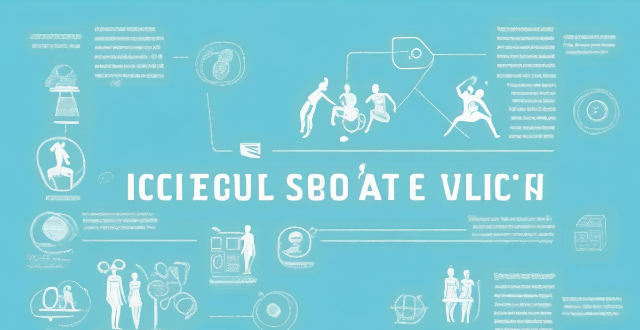
What are some examples of successful initiatives that use sports to promote social inclusion ?
This text discusses successful initiatives that use sports to promote social inclusion. It highlights five examples of such initiatives: Street Football World, Homeless World Cup, Wheelchair Basketball Initiatives, Sporting Equals, and Gender Equality in Sports Programs. These initiatives aim to unite people through football, inspire homeless people, promote disability inclusion, challenge discrimination in British Asian communities, and encourage women's participation in various sports, respectively. The activities include global tournaments for marginalized communities, international tournaments for homeless teams, local wheelchair basketball leagues, community cricket events, and women's sports leagues. The impact of these initiatives is significant, with increased public awareness about homelessness, personal transformation stories of participants, improved physical fitness and self-esteem among disabled individuals, reduced instances of racism and discrimination in sport, and higher visibility and recognition of women in sports.